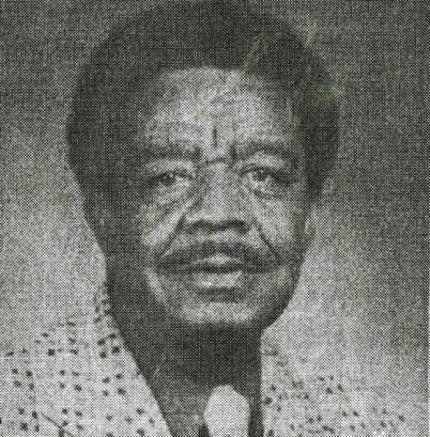Uncategorized
Gideon Parham: Black Trade Unionist and Teamster Leader

The contributions of black members to the success of the Teamsters Union are numerous, varied and as old as the union itself. This month, the Teamsters Union spotlights some of those contributions.
Gideon Parham became a leading figure in the Southern Conference of Teamsters (SCT), helping pave the way for more black involvement in the union.
Parham was born on July 22, 1920, in Carroll County, Georgia. In 1940 he moved to Atlanta, where he worked at a laundry washing military uniforms. In 1940 he began work at Atlantic States Motor Lines, where he joined Teamsters Local 728. He remained with Atlantic States until 1944, when Parham enlisted in the U.S. Navy. He served in the Pacific Theater and was honorably discharged in December 1945.
Following his military service, Parham continued working for Atlantic States and then joined Southeastern Motor Lines. With the passage of the GI Bill of Rights, he studied business administration at Reed’s Business College and Morris Brown College. While at Southeastern he became a shop steward, and in 1954 was elected a Local 728 business agent. Parham also served as a business agent for Locals 450 and 859.
Parham worked as an organizer for Local 728 as well and he took a lot of heat as the first black man to take on that role in the region. Parham was undaunted and continued to do his job no matter what obstacles he faced. Parham was active in the civil rights movement and often worked closely with Teamster friend and Southern Conference colleague Tony Zivalich on civil rights issues.
In 1969 he was promoted to SCT representative, where he worked to organize potential members. In 1972, Parham was a founding member of the Coalition of Black Trade Unionists. Two years later, Parham was appointed a SCT policy committeeman. In 1976, Parham was honored with the Organized Labor and Workmen’s Circle Annual Award for his contributions “in the struggle for freedom, dignity, and economic justice and the rights of all workers.”
Parham remained active with the Teamsters until his retirement in the early 1980s. He subsequently died of natural causes on August 2, 1988. Parham’s contributions to the Teamsters greatly contributed to the success of the union across the South.